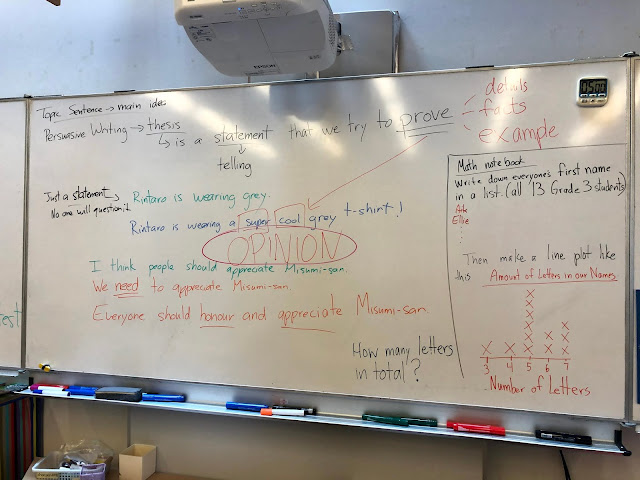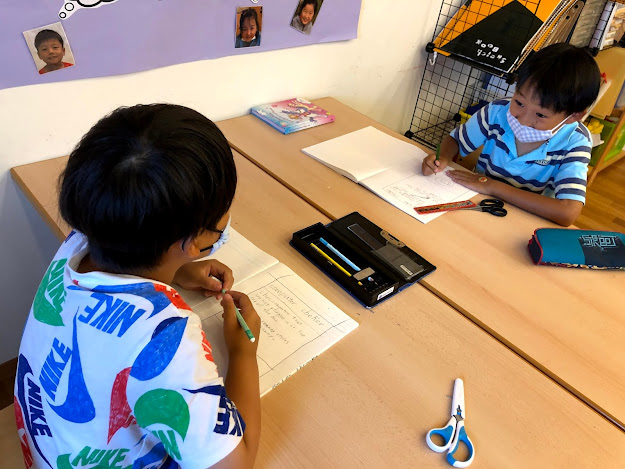The majority of this week was spent inquiring into the Children's Rights as laid out in the United Nations Convention on the Rights of the Child. Students were assigned one of the first 18 points (out of the first 42) to research and explain to the rest of the class. The first activity was to look at the icon for a given number and to predict what it might be about. After thinking and writing down their own ideas, the students got together in small groups of 2 - 3 to share their ideas with others. The titles for the rights were then passed out to the groups and the members had to sort out which title went with which image.
The second main activity was to then gather more information about each right by reading a child-friendly version. While reading the descriptions students identified and looked up the meaning of any unknown words to help them clarify the meaning for themselves and others. They recorded their notes on a 3rd post-it note and then wrote down why they thought the right was important on a 4th post-it note.
Finally, each student was responsible for explaining the right to the rest of the class and also explained why they thought that was an important right.
Real-life Data Handling: Student Council Election Results
In math this week we continued working with data and tallied the votes from our student council class representative election that was held last Friday.
We used a line plot to plot our results. We used a weighted points system in which the voters assigned 3 points to the person that they thought should win the most, 2 points for their second candidate and one point for their third choice. When all was said and done, Lucas and Ellie were elected as our class reps for the year. To demonstrate that the set up for an election is quite important and that the results could have been different, we also plotted votes on an unweighted line plot. The results of plotting it this way showed that had we done it this way, then there would have been a tie between the 2nd and 3rd place vote-getters, the top vote-getter would also have been different.
Later on in the week, students engaged in a number talk to demonstrate different ways of calculating the total number of letters in the Grade 3 students' names. Some used addition strategies, while others used a combination of multiplication and addition strategies. We will be focussing on multiplication and division skills later on in the year.
One new math term that the students learned this week was how to find the mode of a data set.
Writing Strong Thesis Statements
 |
| Add caption |
































